Ray Bradbury
Ray Bradbury, who was once dubbed "The Poet of the Pulps" by Time magazine, is a literary icon and a national treasure, but his influence extends well beyond the printed page.
Noting that he even has a star on the Hollywood Walk of Fame, his biographer Samuel Weller writes that Bradbury has had an influence on everything from comic books to architecture: "Arguably, no other twentieth-century literary figure can claim such a sweeping cultural impact." (Among Bradbury's other claims to fame is the fact, duly noted by his biographer, that he is the rare Angeleno who has never driven a car.)
Ray Bradbury was born in 1920 in Waukegan, Ill. It was a place with both "a palpable magic and a shadowy dark side," Weller writes. Bradbury depicted the town in "Something Wicked This Way Comes" and the semi-autobiographical "Dandelion Wine," which Bradbury's wife, Maggie, confides is her husband's favorite of his works.
Another early influence in his life was radio. Bradbury recalls a memory from when he was 2 years old: His grandfather took him upstairs to show him the crystal radio he'd built and placed a set of earphones over the toddler's ears. "I could hear music in Far-Schenectady," Bradbury recalls, adding: "I didn't realize at the time that I was listening to the future."
Of course, much of Bradbury's best writing has nothing to do with the futuristic technology that dominates science fiction, and everything to do with earthbound terrors. Bradbury's childhood anxieties provided the raw material for his tales, as in the story "The Thing at the Top of the Stairs." The only lavatory in his family home was at the end of a long staircase in the shadowy attic, and his thrifty father left the light off at night to save on the electric bill. "This meant that little Ray, terrified of the dark, had to climb into the unknown," explains Weller. "He was convinced that a monster lurked in the attic, so he would rather hold it or urinate on the staircase."
Weller singles out many defining moments in Bradbury's life — his self-education in the stacks of Waukegan's Carnegie Library, where he read "The Wizard of Oz" and "Nancy Drew"; the evening in 1931 when he was summoned to the stage of the Genesee Theatre to assist Blackstone the Magician in a showy illusion; and the day in 1932 when a carnival performer called Mr. Electrico singled out the boy in the front row, knighting him with a sword and uttering a benediction: "Live forever!"
"I decided that was the greatest idea I had ever heard," Bradbury told his biographer. "Just weeks after Mr. Electrico said this to me, I started writing every day. I never stopped."
Bradbury and his family arrived in Hollywood when he was 13. It was a fateful move. He was star-struck from the first moment, loitering at studio gates in search of autographs — "There you are, you little son of a bitch!" W.C. Fields said after complying with Bradbury's request. He was already on the way to a writing career. At 15, he was cranking out spec scripts for "The Burns & Allen Show," although he managed to place only a single joke on the radio program. By 1937, he saw his name in print for the first time — in a poetry anthology over a piece titled "Death's Voice"; four years later, he broke into the science-fiction pulps with the publication of "Pendulum" in Super Science Stories.
Weller makes the crucial point that Bradbury "was never very interested in the technological underpinnings of science fiction," nor has he ever suffered from the paranoid gloom and apocalyptic doom that characterize the work of a writer like Philip K. Dick. Indeed, Bradbury has never been confined to the science-fiction ghetto — his story "Homecoming," for example, was rejected by Weird Tales but accepted for publication in Mademoiselle, and "I See You Never" appeared in the New Yorker. By 1953, with the career-making "The Martian Chronicles" and "Fahrenheit 451" already in print, Bradbury was about to begin work on his adaptation of "Moby-Dick" for director John Huston. "Do you want the Melville Society's version of 'Moby-Dick,' or the Jungian version, or the Freudian version?" Bradbury asked Huston, who replied: "I want Ray Bradbury's version."
Related stars
|
|
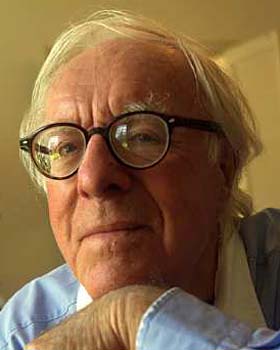
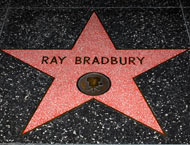
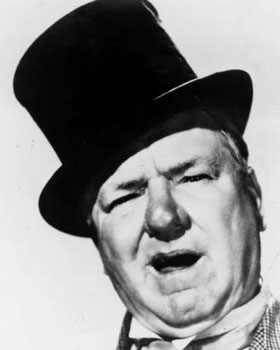
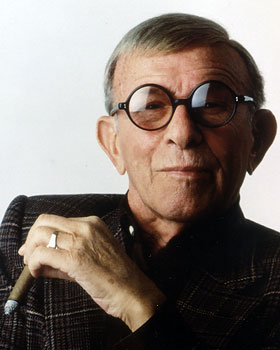
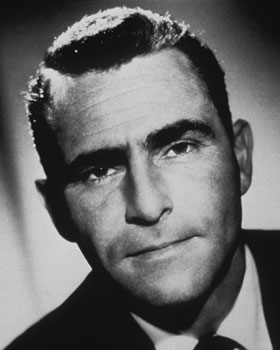
Two thoughts about Ray Bradbury
Share a thought about Ray Bradbury